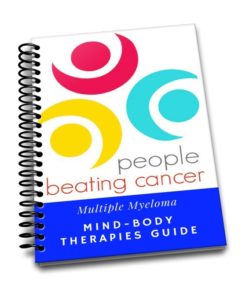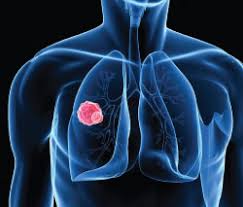“This study examined self-efficacy for managing pain, symptoms, and function in patients with lung cancer and their caregivers, and associations between self-efficacy and patient and caregiver adjustment
As is often the case, the study below confirms something about caregivers and patients that you and I know in our gut. Caregivers and patients with “self-efficacy” or self-confidence, have less stress and care-take better. Patients with less self-efficacy experience report higher pain measures, anxiety, depression, and symptoms.

“Description of Measure: Self-efficacy is a construct from Social Learning Theory, and refers to a subjective belief that a person has about his or her ability to successfully carry out certain kinds of behavior.”
The question is, how do caregiver and patients become more self- efficacious? How do any of us feel more self-confident? Especially if we are dealing with difficult cancer like lung cancer?
I am a long-term cancer survivor and cancer coach. Working with lung cancer patients to provide information and education about both conventional and non-conventional research makes them more confident and gives cancer patients choices.

Have you been diagnosed with lung cancer? What stage? Scroll down the page, ask a question or comment and I will reply to you ASAP.
To Learn More about Non-Conventional Lung Cancer Treatments- click now
thanks,
David Emerson
- Cancer Survivor
- Cancer Coach
- Director PeopleBeatingCancer
Recommended Reading:
Vitamin D, Pulmonary Inflammation and Lung Cancer
Curcumin, Integrative Therapies, Can Overcome Multidrug-Resistance In Lung Cancer
The Cure for Lung Cancer May Be in Fish Oil
“This study examined self-efficacy for managing pain, symptoms, and function in patients with lung cancer and their caregivers, and associations between self-efficacy and patient and caregiver adjustment. One hundred and fifty-two patients with early-stage lung cancer completed measures of self-efficacy, pain, fatigue, quality of life, depression, and anxiety. Their caregivers completed a measure assessing their self-efficacy for helping the patient manage symptoms and measures of psychological distress and caregiver strain.
Analyses indicated that, overall, patients and caregivers were relatively low in self-efficacy for managing pain, symptoms, and function, and that there were significant associations between self-efficacy and adjustment.
Patients low in self-efficacy reported significantly higher levels of pain, fatigue, lung cancer symptoms, depression, and anxiety, and significantly worse physical and functional well being, as did patients whose caregivers were low in self-efficacy.
When patients and caregivers both had low self-efficacy, patients reported higher levels of anxiety and poorer quality of life than when both were high in self-efficacy. There were also significant associations between patient and caregiver self-efficacy and caregiver adjustment, with lower levels of self-efficacy associated with higher levels of caregiver strain and psychological distress. These preliminary findings raise the possibility that patient and caregiver self-efficacy for managing pain, symptoms, and function may be important factors affecting adjustment, and that interventions targeted at increasing self-efficacy may be useful in this population.”





